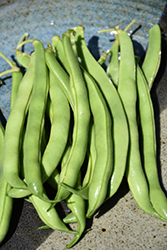Fri & Sat 8am - 8pm
Sun 8am - 7pm
Anytown, USA 12345
fax: 261.787.0463
e-mail: info@successgc.com


Plant Finder

Blue Lake Pole Bean
Phaseolus vulgaris 'Blue Lake Pole'
Height: 6 feet
Spacing: 6 inches
Sunlight:
![]()
Hardiness Zone: (annual)
Description:
A fast growing selection that produces heavy yields of meaty yet tender pods; 7 inch long dark green beans that are string-less with a delicious flavor; great for fresh eating as well as canning and freezing; pick early and often to encourage production
Edible Qualities
Blue Lake Pole Bean is an annual vegetable plant that is commonly grown for its edible qualities. The entire above-ground parts of the plant are edible, and can be harvested at any time in the season. The edible parts have a delicious taste and a crisp texture.
The plant is most often used in the following ways:
- Fresh Eating
- Cooking
- Drying
- Pickling
- Freezing
Planting & Growing
Blue Lake Pole Bean will grow to be about 6 feet tall at maturity, with a spread of 18 inches. When planted in rows, individual plants should be spaced approximately 6 inches apart. Because of its vigorous growth habit, it may require staking or supplemental support. This fast-growing vegetable plant is an annual, which means that it will grow for one season in your garden and then die after producing a crop.
This plant is typically grown in a designated vegetable garden. It should only be grown in full sunlight. It does best in average conditions that are neither too wet nor too dry, and is very intolerant of standing water. It is not particular as to soil pH, but grows best in rich soils. It is quite intolerant of urban pollution, therefore inner city or urban streetside plantings are best avoided. Consider applying a thick mulch around the root zone over the growing season to conserve soil moisture. This is a selected variety of a species not originally from North America, and it is considered by many to be an heirloom variety.
